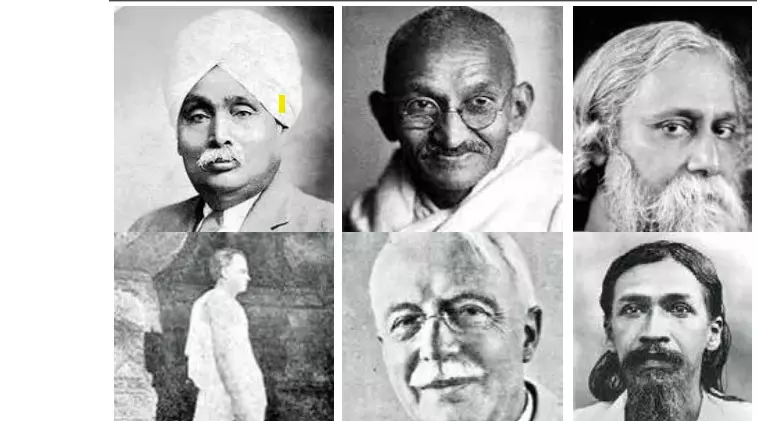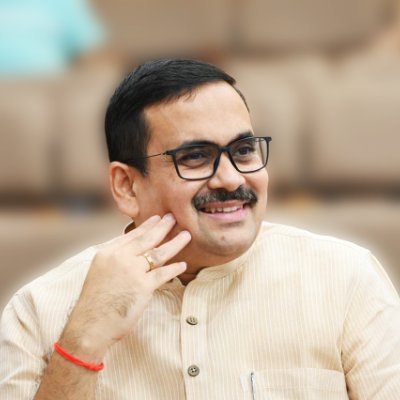The acute irony and deep symbolism of the fact that India, in the 75th year of her hard-earned freedom, surpassed Britain’s economy and has emerged as the fifth largest economy of the world, has left many scratching their heads across the world. It demonstrates an India on the cusp of leaping to great power status. The recent censure of the BBC passed in the Gujarat Assembly has rightly articulated the innermost feelings of indignation and resentment felt towards the BBC by the vast majority of Indians who have repeatedly opted, since 2014, for a new narrative and vision of India and of her future.
While thinking of the BBC documentary and its putrid content the first thought that must come to mind is Mahatma Gandhi’s comparison of Katherine Mayo’s infamous Mother India (1927) to a “drain inspector’s” report. In a review of Mayo’s book in Young India, Gandhi wrote, ‘The impression that it leaves on my mind is that it is the report of a drain inspector sent out with the one purpose of opening and examining the drains of the country to be reported upon, or to give a graphic description of the stench exuded by the open drains.” Gandhi spoke of opening and describing with “punctilious care all the stench [that] exuded from the drains of London” and saying “Behold London”. Exposing Mayo’s dubious scholarship, he argued that Mayo had done the honour of quoting him out of context and selectively. “Any person who collects extracts from a reformer’s diary,” he pointed out in his scathing review of her book, “tears them from their context and proceeds to condemn, on the strength of these, the people in whose midst the reformer has worked, would get no hearing from sane and unbiased readers and hearers…” To Gandhi, Miss Mayo was an “avowed Indophobe and Anglophile” who refused to see “anything good about Indians and anything bad about the British and their rule.”
Editor of the Indian Social Reformer, K Natarajan, was unsparing of Mayo’s antics and ruse when he wrote, “India must go about her reforms in her own way in keeping with the historic continuity of culture and civilisation. She will not be bullied into it by the calumnies of Miss Katherine Mayo. Our right to criticise and condemn the evils of our society and to plead with our people for reform carries with it a corresponding duty to defend them against interested and malicious calumny such as Miss Katherine Mayo’s.”
In his widely read and discussed work ‘Unhappy India’, Lala Lajpat Rai was equally trenchant and unsparing. “Political subjection”, wrote Rai, “effectively checks any rejuvenation or reconstruction. It accentuates social evils and weaknesses. It leads to poverty in all its hideous forms, mental, moral and physical. If ever an awakening comes, it is delayed or checked and crushed by all the forces of law and diplomacy, and of cunning and fraud. It is a part of the imperial game to paint the subject people in the blackest colours, and to slander and libel them most shamelessly.”
Rabindranath Tagore too dismissed Mayo as a “tourist from America” who displayed “deliberately untruthful irresponsibility” and “indulging in a malicious piece of fabrication.” Mayo’s colossal ignorance of India a century ago equals that of the global and local managers of BBC and its sponsors today, including the BBC’s most faithful Indian amplifier in the present times, Rahul Gandhi. The milieu may have changed, but the agenda, mentality and strategy remain unchanged.
An American hired by the British to demean India, Mayo, a committed “Indophobe”, did in her time, what the BBC attempts to do in the present with its documentary. The motive, the mentality and the means continue to be similar, and the agenda remains the same. In the past, it was aimed at an entire country and its people, in the present, it is aimed at one individual, one leader, who firmly believes in the greatness of his country and in its potential to emerge as one of the greatest nations of the world.
There were Westerners too, whose discovery of India was fundamental and foundational. They became amplifiers for civilisational India in the larger world. In their rejoinders and responses, they came across as committed and rooted Indophiles, who had discovered a deeper meaning in the essence and purpose of India. Their contribution thus, in the heydays of India’s struggle for freedom was crucial to the shaping of public and intellectual opinion on India and her aspirations. About a decade before Mayo had churned out her refuse on India, James Cousins, Irish writer, poet and playwright, who had made India his home, came out with his strikingly perceptive tract, ‘The Renaissance in India’, which instantly created a sensation. In his seminal essays bearing the same title and written around that time, Sri Aurobindo heaped praise on Cousins and his reading of India’s cultural and spiritual fabric.
Sri Aurobindo, himself, would churn out his classic, later published as ‘The Foundations of Indian Culture’, as a response to a half-baked and sensation-mongering theatre critic and writer William Archer. Archer’s uninformed and non-academic assessment of Indian culture had led the formidable Indophile, John Woodroffe to write his famous and acclaimed ‘Is India Civilised’, a sharp and inspiring rejoinder, which had impressed Sri Aurobindo. Archer had, as Sri Aurobindo caustically observed, left “his safe and natural sphere for fields in which his chief claim to speak was a sublime and confident ignorance.” A powerful and many-sided debate on dimensions of civilisational India thus ensued following the appearance of these articles, written by some of the greatest Indian scholars of modern times.
James Cousins’ assimilation of India had a transformative effect on him. As he wrote from his perch in Madanapalle, “I came upon the spirit of Child Krishna, and the energy of Dancing Siva, and in less than six months (after coming to India) I was up to the eyes in signs and tokens of a new life in literature, the arts, religion and national aspiration, movements that throw me back a quarter of a century in spirit…My deepest sensation has been as if I had been awakening, not India. The truth is, India needs no awakening. She is wide awake. She has always been awake.” It is to the likes of Cousins and Woodroffe, to name a few, that we must also turn to derive inspiration and firm up our resolve.
However, the Mayo mentality continues to persist in certain quarters and sections and in India it finds supporters and amplifiers in a well-off section driven by the still persistent Mayo mindset. It is a mindset which triumphs in denigrating India and in ensuring that those who speak of and stand for the vision of India first are opposed. It is this mindset and approach which PM Narendra Modi has often referred to as the “colonial mindset”, a mindset which revels in reducing and deconstructing the various layers of India’s essence.
In the past, most of the leaders of our freedom struggle put up a spirited defence and counter whenever such biased works emanated from the West. From Bankim to Vivekananda, Sri Aurobindo to Ananda Coomaraswamy, from Savarkar to KM Munshi, Mahatma Gandhi to Gurudev Rabindranath Tagore, from KP Jayaswal to Radhakumud Mookerjee, to RC Majumdar to PV Kane, each rejoinder, each response and talking back produced some of the finest intellectual, historical and social treatise in defence of civilizational India. Each time the West and its agencies attempted to impose a motivated reading of India and to dump trash on her achievements and aspirations, it saw a response arise from some of the greatest minds in India.
That talking back and response must continue even in our age and time. It is a permanent prerequisite for India as she passes through ‘Amrit Kaal’ and has to be relentless, active, vigorous, unsparing, cogent and unassailable. As Sri Aurobindo argued, in his essays on the Indian Renaissance, “defence by itself in the modern struggle can only end in defeat, and, if battle there must be, the only sound strategy is a vigorous aggression based on a strong, living and mobile defence; for by that aggressive force alone can the defence itself be effective.”
The writer is a member of the National Executive Committee (NEC), BJP, and the Director of Dr Syama Prasad Mookerjee Research Foundation. Views expressed are personal.
(The views expressed are the author's own and do not necessarily reflect the position of the organisation)


